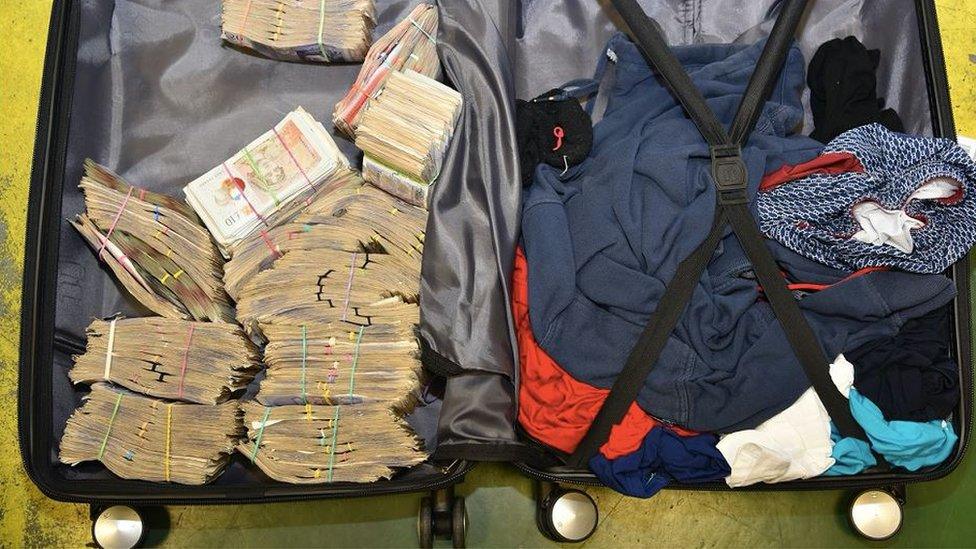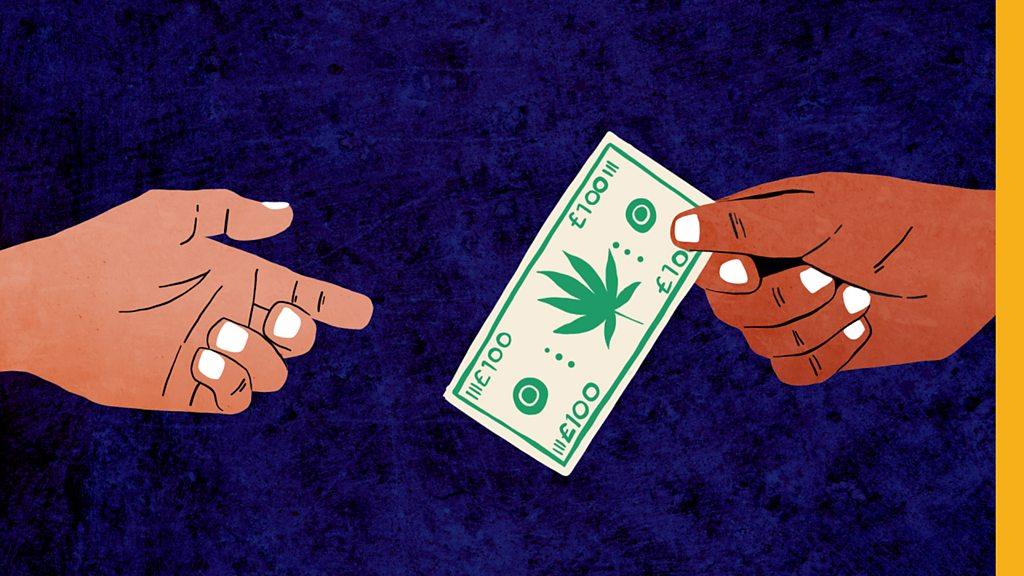Nine arrested in Yorkshire over Dubai money-smuggling plot
- Published

The National Crime Agency said millions of pounds has been seized in suitcases at UK airports in the past year
Nine men have been arrested in Yorkshire as part of a money-laundering investigation into a gang who was smuggling money to Dubai in suitcases.
Raids were carried out by The National Crime Agency (NCA) in Cleckheaton, Bradford, Dewsbury and Bridlington.
The organised crime gang is thought to have smuggled millions of pounds out of UK airports, last year.
Nine others were arrested on suspicion of similar offences last year, as part of the same inquiry.
The NCA said it thought it had "significantly disrupted an extensive crime group trying to wash drugs money."
Jon Hughes, of the NCA, said: "Border Force have done excellent work preventing the money leaving the UK and we have a series of lines of enquiry to pursue and are working effectively with our partners in Dubai Police.
"Organised crime groups rely on money launderers and cash is their lifeblood."
The latest arrests bring to 24 the total number of suspects linked to the investigation, with six people also arrested over facilitating and coordinating money-laundering.
The NCA said £2.3m has been seized as part of the wider investigation.
In Dubai, known as the City of Gold, money can be exchanged for gold with little suspicion and converted back into cash, which is then transferred to bank accounts around the world.
The NCA also charged 10 suspects in an unrelated operation in West London last week, believed to be part of an organised crime gang that has laundered £15.5m from the UK over three years.

What is money laundering?
Money laundering is literally turning "dirty" money - from crime such as drugs or arms deals, extortion, brothels, illegal gambling - into "clean" money so it can be used in the legal economy.
Money is often laundered through legitimate-seeming investments and assets such as takeaways, property development or laundrettes - in fact 1930s US gangster Al Capone invested in cash-only laundrettes, which is apparently a reason for the term "money-laundering".
It is a crime in itself but only became illegal in 1986.

Follow BBC Yorkshire on Facebook, external, Twitter, external and Instagram, external. Send your story ideas to yorkslincs.news@bbc.co.uk, external.
- Published28 October 2019
